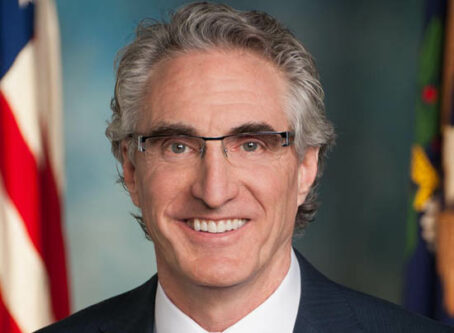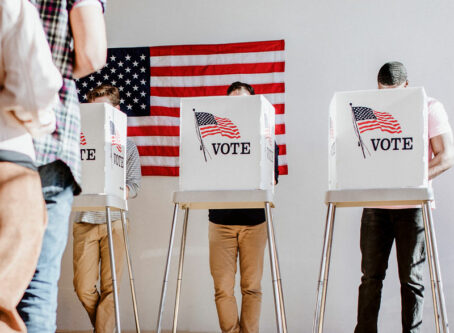Connecticut, Louisiana, Utah consider lockboxes on transportation funds
Statewide ballots in Connecticut and Louisiana on Tuesday included questions to protect transportation funds from being raided for other purposes. Both measures won support from voters. The Utah ballot included a question about whether road funds should be diverted.
Connecticut Amendment 1
Voters in Connecticut overwhelmingly approved making a change to the state’s constitution to protect the state’s transportation revenue from raids via a “lockbox.”
There are at least 29 states with constitutional provisions on dedicated or restricted state funds for transportation, according to the Council of State Governments. By a margin of 88-12 percent, voters chose to make Connecticut the sixth state in five years to adopt a constitutional amendment to protect transportation revenue.
Efforts at the Connecticut statehouse in recent years to raise revenue for transportation work have stalled due to concerns about funds being diverted for other purposes.
In an effort to address this concern, Amendment 1 asked voters whether to amend the state’s constitution to prohibit lawmakers from using the state’s Special Transportation Fund for anything other than transportation purposes.
The fund is supported by the state’s fuel tax, motor carrier road tax, petroleum products gross earnings tax, certain motor vehicle receipts and fees, motor vehicle-related fees, and a portion of state sales tax.
Raids of the state’s transportation fund are not uncommon. Through the years legislatures and governors in the Nutmeg State have tapped money raised via vehicle taxes and fees for other purposes.
In recent legislative sessions, lawmakers have advocated for higher fuel tax rates and border tolls to help the state address road and bridge funding needs. The efforts have failed to gain support largely due to outgoing-Gov. Dan Malloy’s demands for first adding protections for new revenue.
Advocates said the creation of a lockbox would allow the state to move forward with plans to raise road revenues.
Opponents labeled the lockbox as a “gimmick” to sell the idea of installing tolls in the state. They added that legislators and a governor could find ways around a constitutional amendment to protect state transportation dollars.
Louisiana Constitutional Amendment 4
Voters in Louisiana decided whether to keep fuel tax revenues in a “lockbox” solely for transportation purposes.
Constitutional Amendment 4 was approved by a 56-44 percent margin. Passage ends the dedication of revenue from the Transportation Trust Fund to state police for traffic control.
The fund was setup to collect revenue from all state fuel taxes. Available revenue is used for road and bridge work, a stateside flood-control program, ports, airports, transit, state police, and the Parish Transportation Fund for parish governments.
Passage of the question amends the state constitution to take away the option for state lawmakers and the governor to move funds to state police.
Approval of Amendment 4 marks the second time in as many years that Louisiana voters decided on a transportation question.
In 2017, voters approved Constitutional Amendment 3 to protect new transportation funds raised in the state. As a result, any new fuel tax revenues in the state could not be used for purposes unrelated to transportation and infrastructure.
Approval of the amendment to the state’s Constitution was anticipated to aid efforts to address a $13 billion backlog for transportation needs. Another $10 billion in needs has been identified for “megaprojects” in the state.
Utah Question 1
Utah voters weighed in on whether they would be willing to pay more at the pump to support schools.
The state now collects 29.4 cents per gallon on fuel purchases to help cover transportation costs. A portion of revenue from the state’s general fund – $600 million annually – is also applied to roads.
Nonbinding Opinion Question 1 asked voters about putting general fund money ordinarily reserved for road use instead towards education. Specifically, the question was used to gauge support for a 10-cent increase in the state’s fuel tax to help cover costs to increase salaries for teachers and support staff.
The increase is estimated to raise $180 million in the first full budget year. A portion of new revenues – $55 million – would also be applied to local roads.
Voters rejected the idea by a nearly two-to-one margin.
Approval at the ballot would have greenlighted the Utah Legislature to pursue passage of legislation to increase the state’s fuel tax.
Opponents of the question said legislators should instead look at more efficient ways to allocate resources already available to the state.









